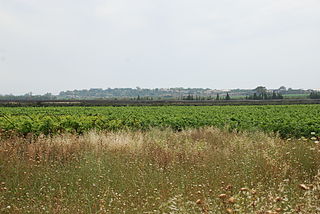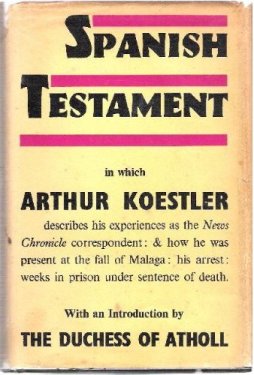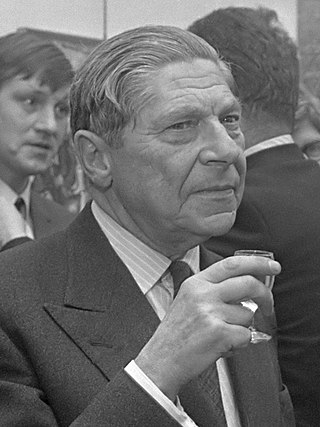
Absalom was the third son of David, King of Israel with Maacah, daughter of Talmai, King of Geshur.

Jacob, later given the name Israel, is regarded as a patriarch of the Israelites and is an important figure in Abrahamic religions, such as Judaism, Samaritanism, Christianity, and Islam. Jacob first appears in the Book of Genesis, originating from the Hebrew tradition in the Torah. Described as the son of Isaac and Rebecca, and the grandson of Abraham, Sarah, and Bethuel, Jacob is presented as the second-born among Isaac's children. His fraternal twin brother is the elder, named Esau, according to the biblical account. Jacob is said to have bought Esau's birthright and, with his mother's help, deceived his aging father to bless him instead of Esau. Later in the narrative, following a severe drought in his homeland of Canaan, Jacob and his descendants, with the help of his son Joseph, moved to Egypt where Jacob died at the age of 147. He is supposed to have been buried in the Cave of Machpelah.

John Dowland was an English Renaissance composer, lutenist, and singer. He is best known today for his melancholy songs such as "Come, heavy sleep", "Come again", "Flow my tears", "I saw my Lady weepe", "Now o now I needs must part", and "In darkness let me dwell". His instrumental music has undergone a major revival, and with the 20th century's early music revival, has been a continuing source of repertoire for lutenists and classical guitarists.

The Grapes of Wrath is an American realist novel written by John Steinbeck and published in 1939. The book won the National Book Award and Pulitzer Prize for fiction, and it was cited prominently when Steinbeck was awarded the Nobel Prize in Literature in 1962.

Ishmael is a character in Herman Melville's Moby-Dick (1851), which opens with the line "Call me Ishmael." He is the first-person narrator of much of the book. Because Ishmael plays a minor role in the plot, early critics of Moby-Dick assumed that Captain Ahab was the protagonist. Many either confused Ishmael with Melville or overlooked the role he played. Later critics distinguished Ishmael from Melville, and some saw his mystic and speculative consciousness as the novel's central force rather than Captain Ahab's monomaniacal force of will.
"To His Coy Mistress" is a metaphysical poem written by the English author and politician Andrew Marvell (1621–1678) either during or just before the English Interregnum (1649–60). It was published posthumously in 1681.

Christian Zionism is a political and religious ideology that, in a Christian context, espouses the return of the Jewish people to the Holy Land. Likewise, it holds that the founding of the State of Israel in 1948 was in accordance with biblical prophecies transmitted through the Old Testament: that the re-establishment of Jewish sovereignty in the Levant—the eschatological "Gathering of Israel"—is a prerequisite for the Second Coming of Jesus Christ. The term began to be used in the mid-20th century, in place of Christian restorationism, as proponents of the ideology rallied behind Zionists in support of a Jewish national homeland.
The Hittites, also spelled Hethites, were a group of people mentioned in the Hebrew Bible. Under the names בני-חת and חתי they are described several times as living in or near Canaan between the time of Abraham and the time of Ezra after the return of the Jews from the Babylonian exile. Their ancestor was Heth.

Darkness at Noon is a novel by Hungarian-born novelist Arthur Koestler, first published in 1940. His best known work, it is the tale of Rubashov, an Old Bolshevik who is arrested, imprisoned, and tried for treason against the government that he helped to create.

The sabbath year, also called the sabbatical year or shǝvi'it, or "Sabbath of The Land", is the seventh year of the seven-year agricultural cycle mandated by the Torah in the Land of Israel and is observed in Judaism.

Arrival and Departure (1943) is the third novel of Arthur Koestler's trilogy concerning the conflict between morality and expedience. The first volume, The Gladiators, is about the subversion of the Spartacus revolt, and the second, Darkness at Noon, is the celebrated novel about the Soviet show trials. Arrival and Departure was Koestler's first full-length work in English, The Gladiators and Darkness at Noon having originally been written in German. It is often considered to be the weakest of the three.

The Shore Road Mystery is Volume 6 in the original The Hardy Boys Mystery Stories published by Grosset & Dunlap. The plot centers on attempts by the Hardy Boys to catch a ring of car thieves stealing cars from the Shore Road.

The Thirteenth Tribe is a 1976 book by Arthur Koestler advocating the Khazar hypothesis of Ashkenazi ancestry, the thesis that Ashkenazi Jews are not descended from the historical Israelites of antiquity, but from Khazars, a Turkic people. Koestler hypothesized that the Khazars migrated westwards into Eastern Europe in the 12th and 13th centuries when the Khazar Empire was collapsing.

Spanish Testament is a 1937 book by Arthur Koestler, describing his experiences during the Spanish Civil War. Part II of the book was subsequently published on its own, with minor modifications, under the title Dialogue with Death. Koestler made three trips to Spain during the civil war; the third time he was captured, sentenced to death and imprisoned by the Nationalist forces of General Franco. Koestler was working as an espionage agent on behalf of the Comintern and as an agent of the Second Spanish Republic's official news agency, using for cover accreditation to the British daily News Chronicle.

Dialogue with Death, a book by Arthur Koestler, was originally published in 1937 as a section of his book Spanish Testament, in which he describes his experiences during the Spanish Civil War. Part II of the book was subsequently decoupled from Spanish Testament and, with minor modifications, published on its own under the title Dialogue with Death. The book describes Koestler’s prison experiences under sentence of death. The book was written in the late autumn of 1937 immediately after his release from prison, when the events were still vivid in his memory.

Kikayon is the Hebrew name of a plant mentioned in the Biblical Book of Jonah.

Theodor Herzl was an Austro-Hungarian Jewish journalist, lawyer, writer, playwright and political activist who was the father of modern political Zionism. Herzl formed the Zionist Organization and promoted Jewish immigration to Palestine in an effort to form a Jewish state. Due to his Zionist work, he is known in Hebrew as Chozeh HaMedinah, lit. 'Visionary of the State'. He is specifically mentioned in the Israeli Declaration of Independence and is officially referred to as "the spiritual father of the Jewish State".

Arthur Koestler was an Austro-Hungarian-born author and journalist. Koestler was born in Budapest, and apart from his early school years, was educated in Austria. In 1931, Koestler joined the Communist Party of Germany, but he resigned in 1938 after becoming disillusioned with Stalinism.

The Land of Israel is the traditional Jewish name for an area of the Southern Levant. Related biblical, religious and historical English terms include the Land of Canaan, the Promised Land, the Holy Land, and Palestine. The definitions of the limits of this territory vary between passages in the Hebrew Bible, with specific mentions in Genesis 15, Exodus 23, Numbers 34 and Ezekiel 47. Nine times elsewhere in the Bible, the settled land is referred as "from Dan to Beersheba", and three times it is referred as "from the entrance of Hamath unto the brook of Egypt".

Whose Names Are Unknown is an American novel by Sanora Babb, written in the 1930s but not published until 2004. It centers on members of a High Plains farm family during the Great Depression as they endure the poverty inflicted by drought and the Dust Bowl; they ultimately flee to California in hopes of building a better life but encounter a new set of hardships.

















